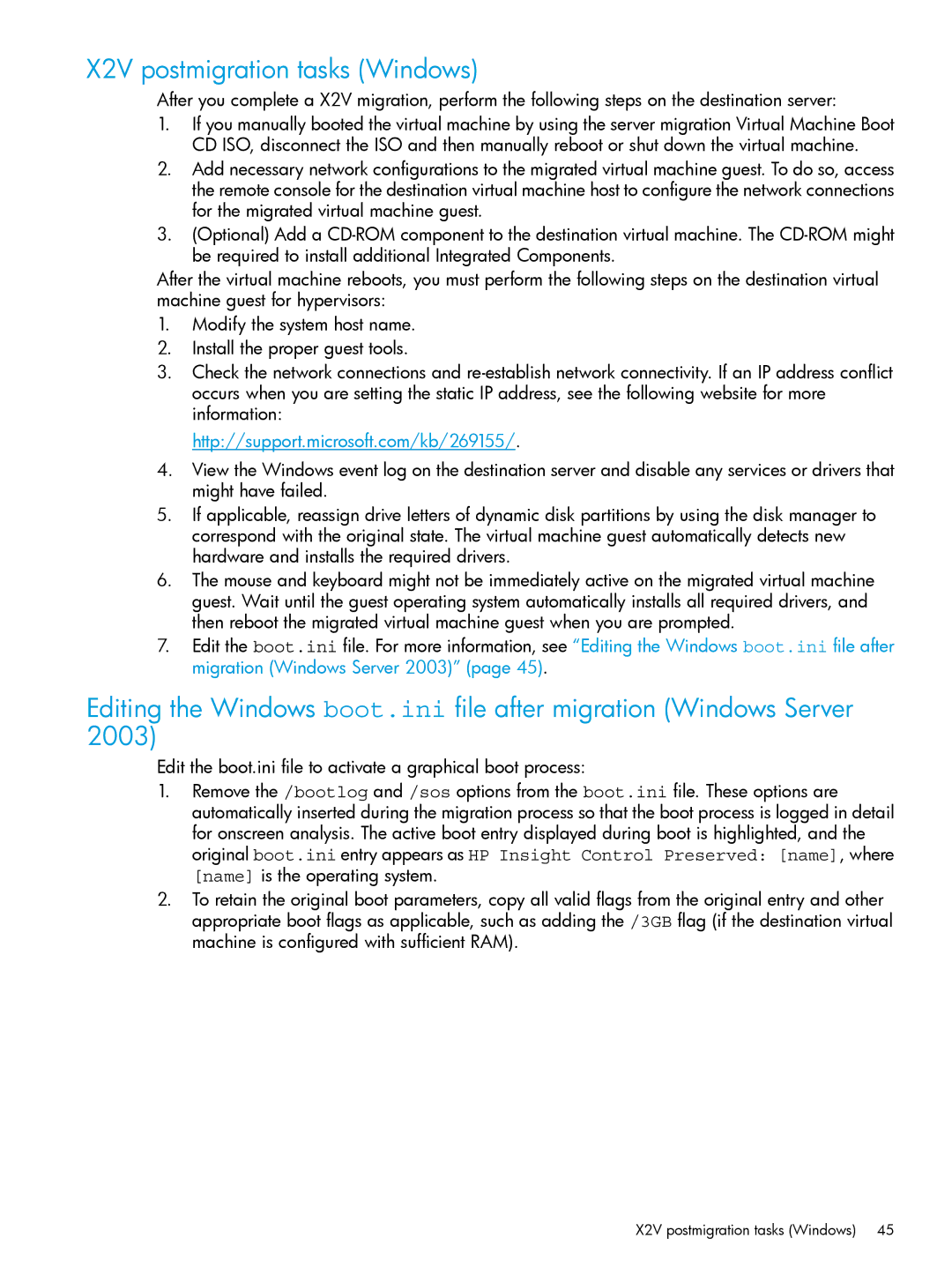X2V postmigration tasks (Windows)
After you complete a X2V migration, perform the following steps on the destination server:
1.If you manually booted the virtual machine by using the server migration Virtual Machine Boot CD ISO, disconnect the ISO and then manually reboot or shut down the virtual machine.
2.Add necessary network configurations to the migrated virtual machine guest. To do so, access the remote console for the destination virtual machine host to configure the network connections for the migrated virtual machine guest.
3.(Optional) Add a
After the virtual machine reboots, you must perform the following steps on the destination virtual machine guest for hypervisors:
1.Modify the system host name.
2.Install the proper guest tools.
3.Check the network connections and
http://support.microsoft.com/kb/269155/.
4.View the Windows event log on the destination server and disable any services or drivers that might have failed.
5.If applicable, reassign drive letters of dynamic disk partitions by using the disk manager to correspond with the original state. The virtual machine guest automatically detects new hardware and installs the required drivers.
6.The mouse and keyboard might not be immediately active on the migrated virtual machine guest. Wait until the guest operating system automatically installs all required drivers, and then reboot the migrated virtual machine guest when you are prompted.
7.Edit the boot.ini file. For more information, see “Editing the Windows boot.ini file after migration (Windows Server 2003)” (page 45).
Editing the Windows boot.ini file after migration (Windows Server 2003)
Edit the boot.ini file to activate a graphical boot process:
1.Remove the /bootlog and /sos options from the boot.ini file. These options are automatically inserted during the migration process so that the boot process is logged in detail for onscreen analysis. The active boot entry displayed during boot is highlighted, and the original boot.ini entry appears as HP Insight Control Preserved: [name], where
[name] is the operating system.
2.To retain the original boot parameters, copy all valid flags from the original entry and other appropriate boot flags as applicable, such as adding the /3GB flag (if the destination virtual machine is configured with sufficient RAM).
X2V postmigration tasks (Windows) 45
